This post may contain affiliate links. Please read our disclosure policy.
Learn how to dry parsley with my three easy ways of dehydrating parsley. This is a great way to preserve herbs for months – and it’s super budget-friendly, too.
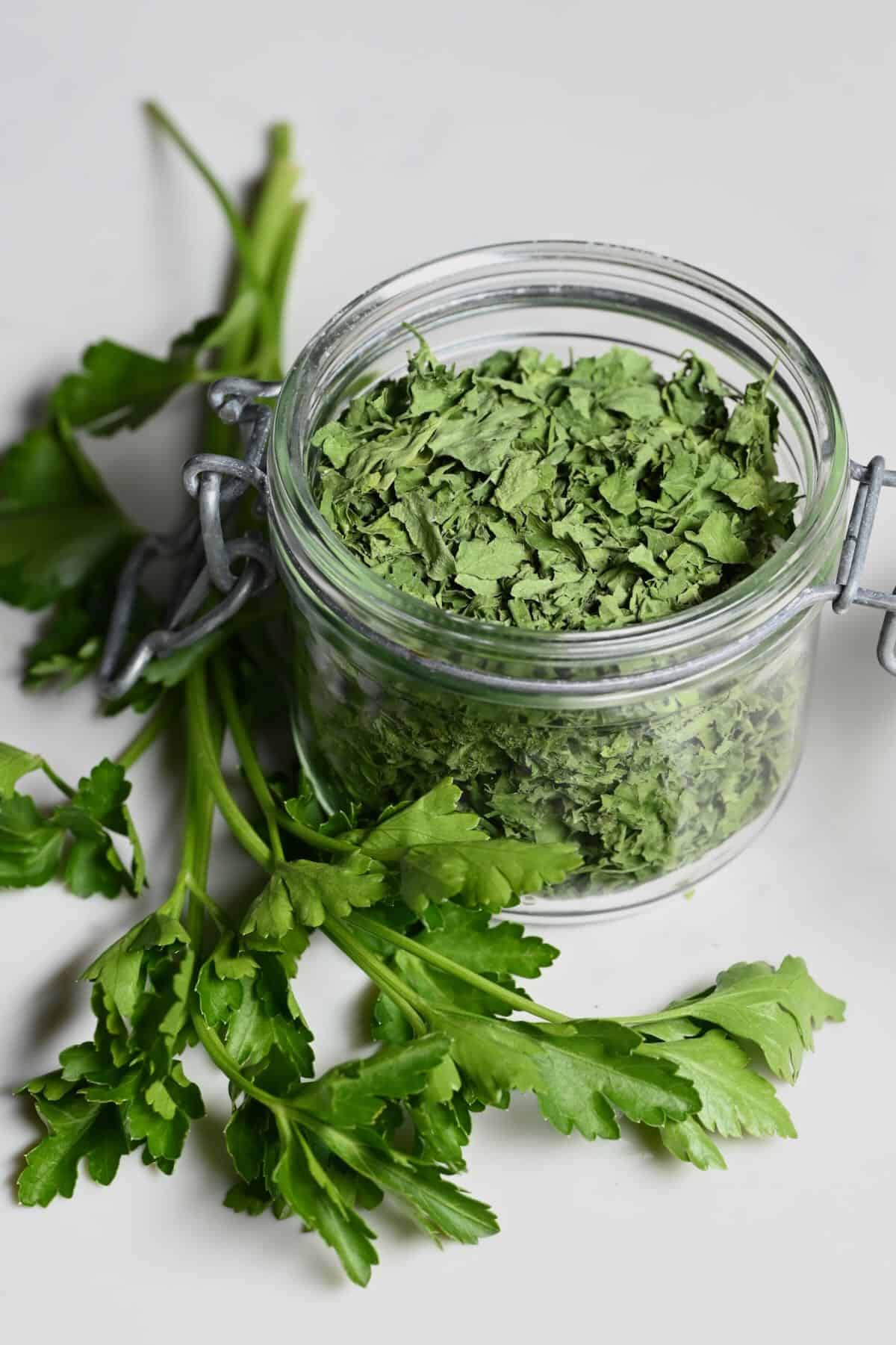
I hate throwing things away. And, at a time when everyone can be doing a bit more to live more sustainably and reduce food waste, learning how to preserve your produce so it lasts longer is great to extend the shelf life of ordinary things you buy and grow.
I love having fresh herbs to use in recipes, but they don’t last long after harvesting. In the past, I’ve talked about drying thyme, mint, and chives. Now, it’s all about drying fresh parsley – one of the other staples of the herb garden.
Want to save this recipe?
How to Dry Parsley
When preserving parsley, I recommend using parsley that’s as fresh as possible – this will provide the best results. Remove the leaves from the stems (unless you’re air drying). Wash well and pat dry absorbing as much moisture as possible with a kitchen towel or paper towel. Using a salad spinner can help too.
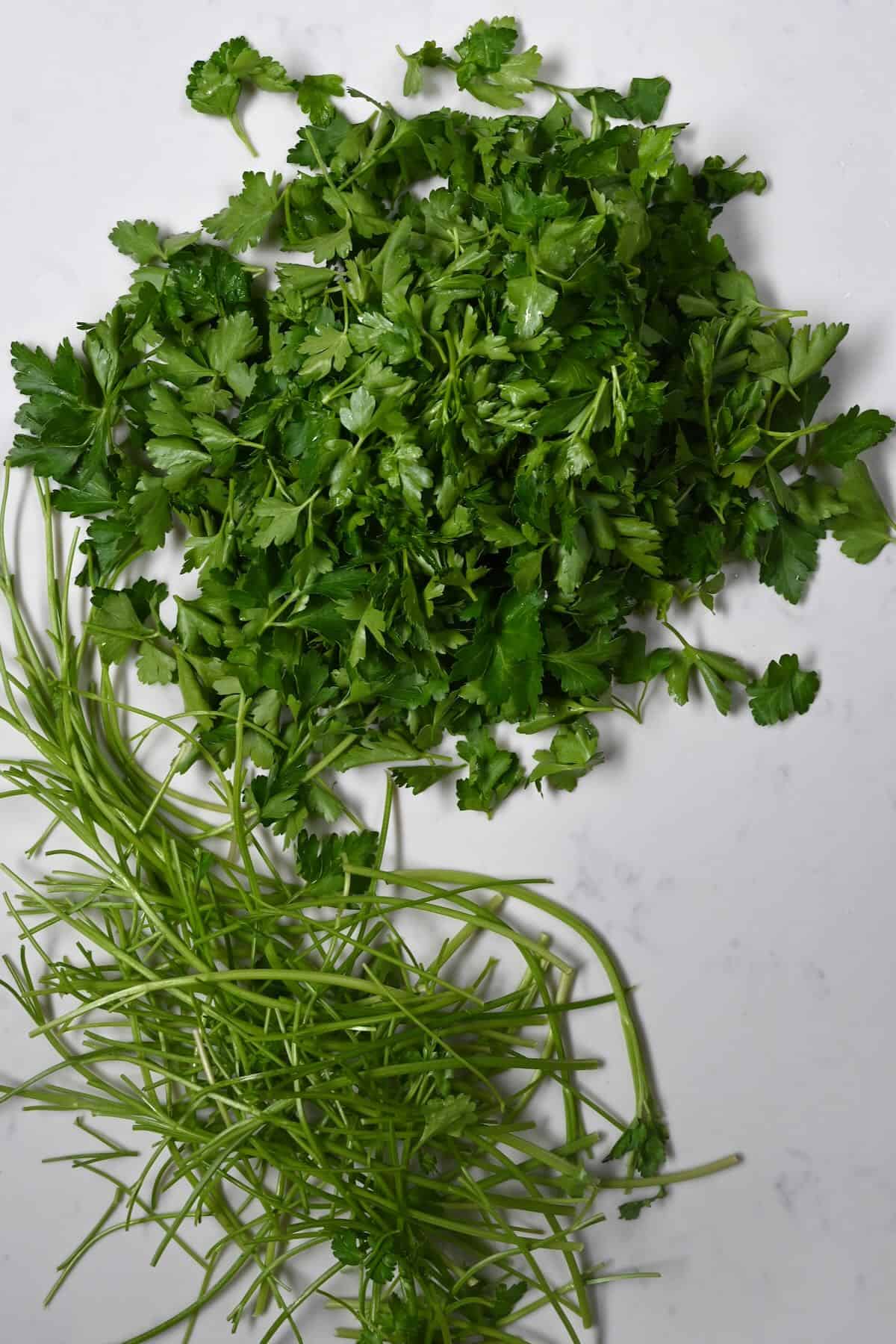
Here are the three ways you can easily dehydrate parsley.
In a Dehydrator
Spread the parsley leaves in a single layer on the trays of a food dehydrator. Set the temperature to 95-100°F (35-38°C). Dehydrate until the parsley is completely dry – this will take about 1-2 hours, though check on it continuously during the dehydration process.
The parsley is done when the leaves crumble easily.
Cool the dry parsley and then store it in a glass jar or container. If wanted, you can crush the leaves into smaller pieces.
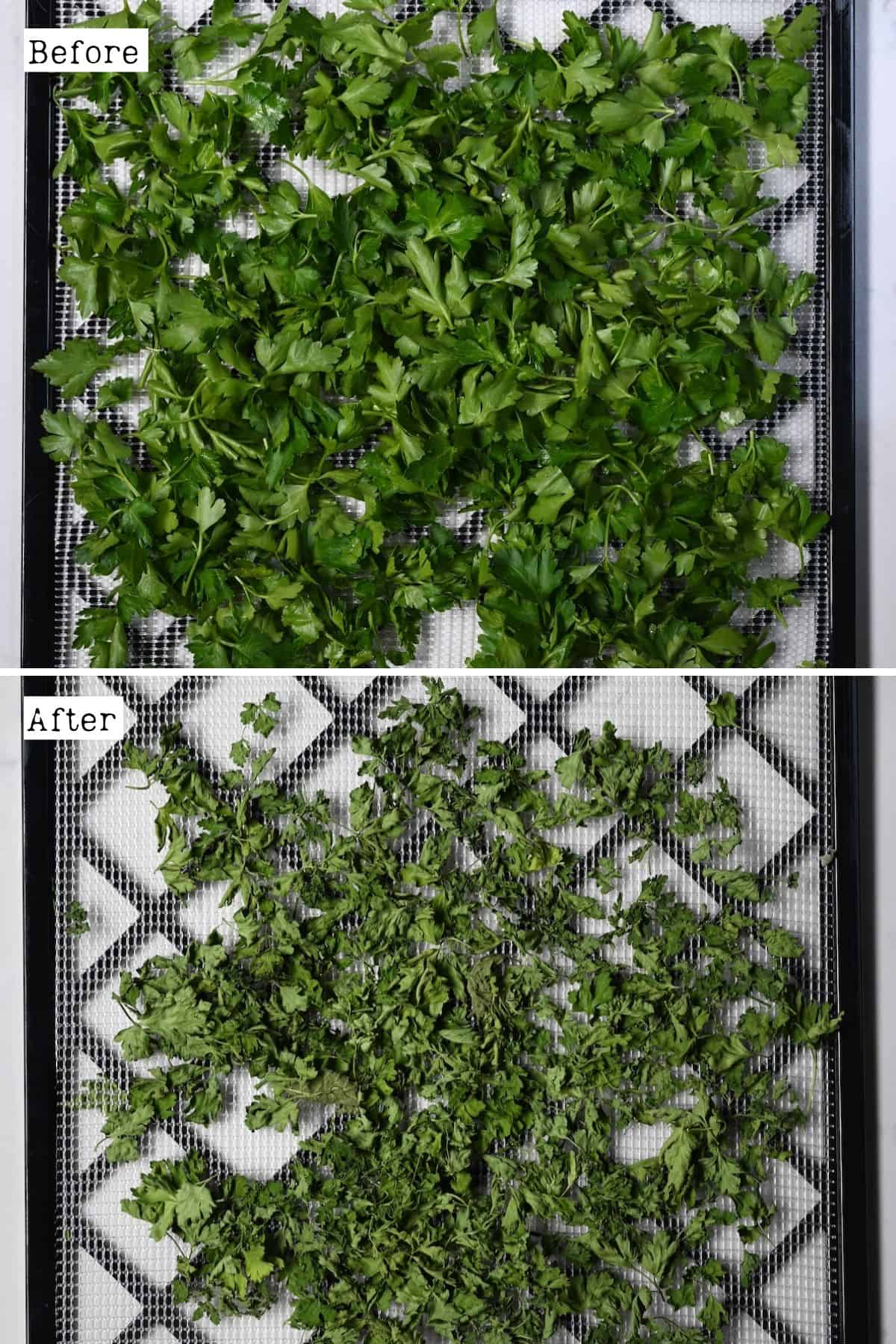
In the Oven
To oven dry parsley, you need to preheat your oven to the lowest temperature. Often that’s about 170°F (75°C). Some new ovens can reach a lower temperature of 95-100°F (35-38°C). In this case, you don’t need to keep the door open while drying parsley in the oven.
Spread the leaves in a single layer on a baking sheet lined with parchment paper. Place in the oven and use a wooden spoon to keep the door cracked open. This will allow the moisture to escape.
Remove the dried parsley from the oven when the leaves are dry but still green – this will take about 1-2 hours. I recommend checking on it every 20 minutes or so.
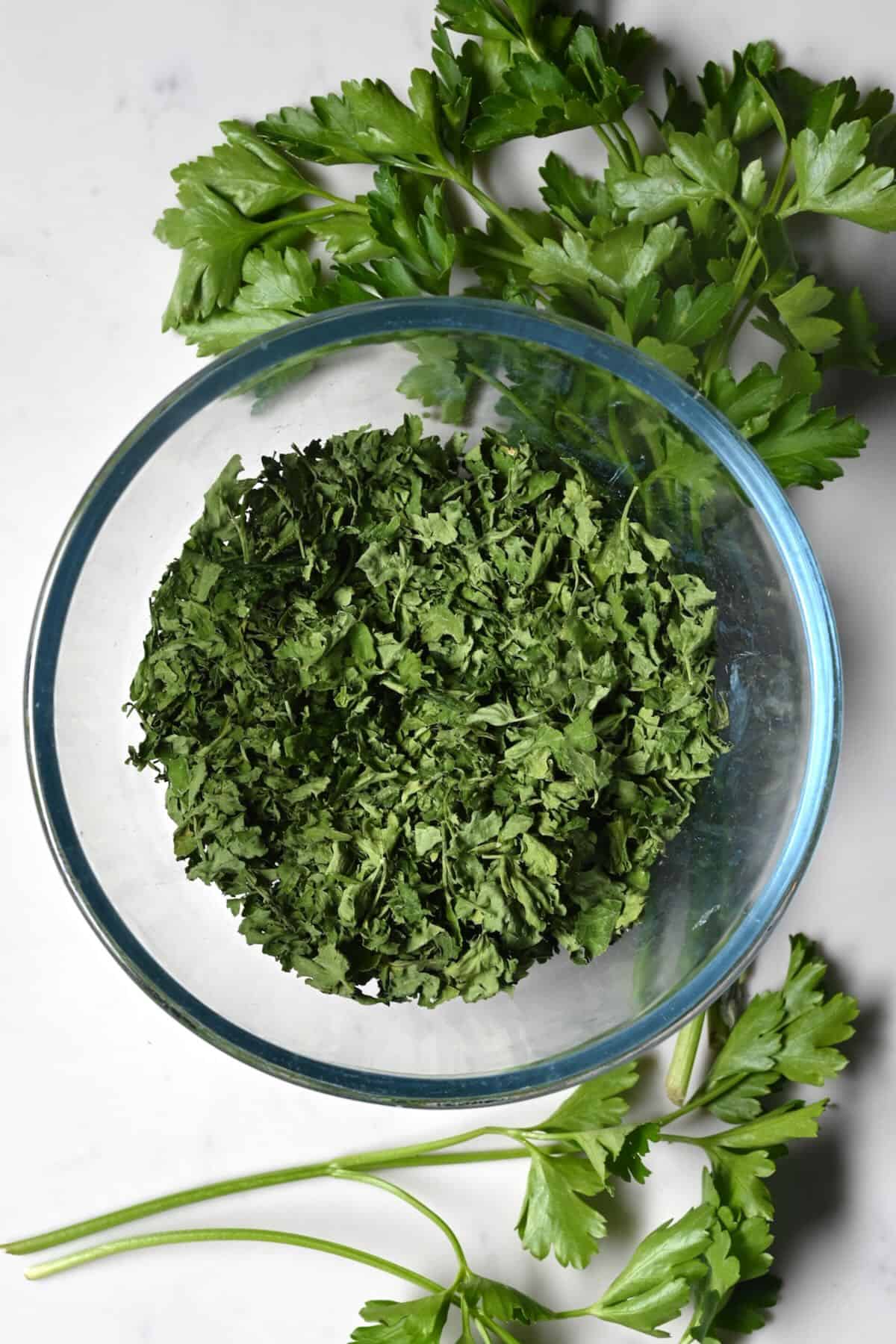
Air Drying
To make dried parsley with minimal effort, tie the stems with a rubber band or twine. Then hang them upside down in a well-ventilated area.
Avoid drying them in direct sunlight as it can cause the leaves to lose their color and flavor. You can place them in a brown paper bag to protect the bundle.
It can take up to two weeks to dry parsley completely using this method, but I think it’s worth it if you’re looking to get dried herbs without using too much energy.
What Are Parsley Flakes Used for
Generally, these dried flakes are used as an alternative to fresh parsley – bringing all of the flavor without potentially wasting fresh leaves. The flakes, which are just dried and crushed dried parsley leaves, can be used in many ways, like seasoning chicken and fish, in soups, or adding flavor to sauces.
Like green onions, this dried herb is a great way to add color to a dish that needs more depth or add an extra boost of flavor to dishes that need complimenting flavors to their core ingredients.
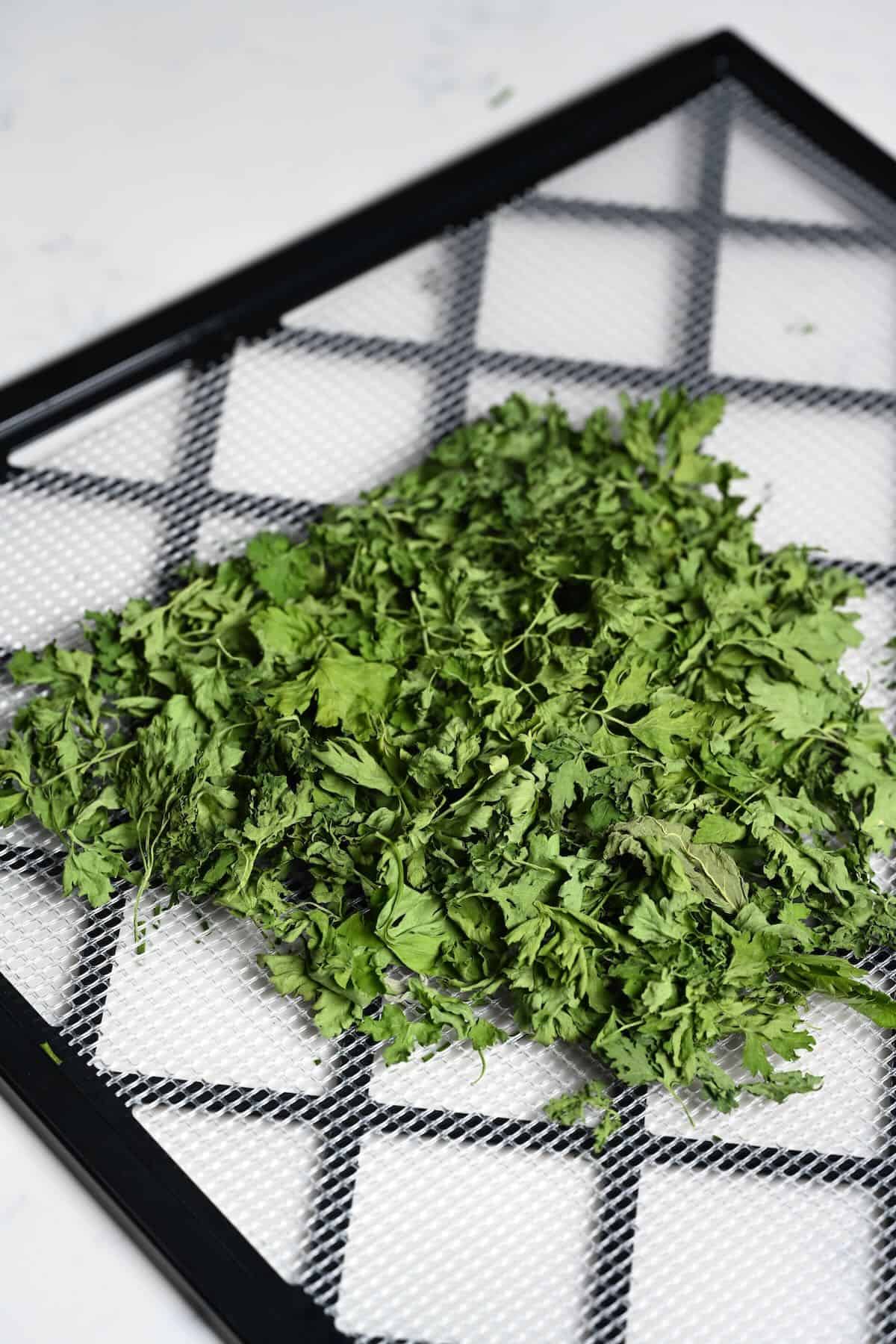
FAQs
Store dried parsley in a dark place and well sealed (e.g. in a mason jar). In such conditions, it can last between 1-3 years at most.
The stems are great for turning into sauces, like pesto, garnishing salads, or adding to soups and vegetable stocks.
2 Tbsp fresh parsley leaves = 1 tsp dried parsley. Another rule to follow is 1 tsp dry parsley = ½ tsp ground dried herb.
More Drying Tutorials
- How to Dry Chives
- Drying Green Onions
- How to Make Apple Chips
- Drying Sage Leaves (4 Methods)
- How Dry Oregano
- How to Dry Dill (3 Easy Ways)
- What’s the difference between parsley and cilantro?
- How to Dry Basil Leaves (3 Methods)
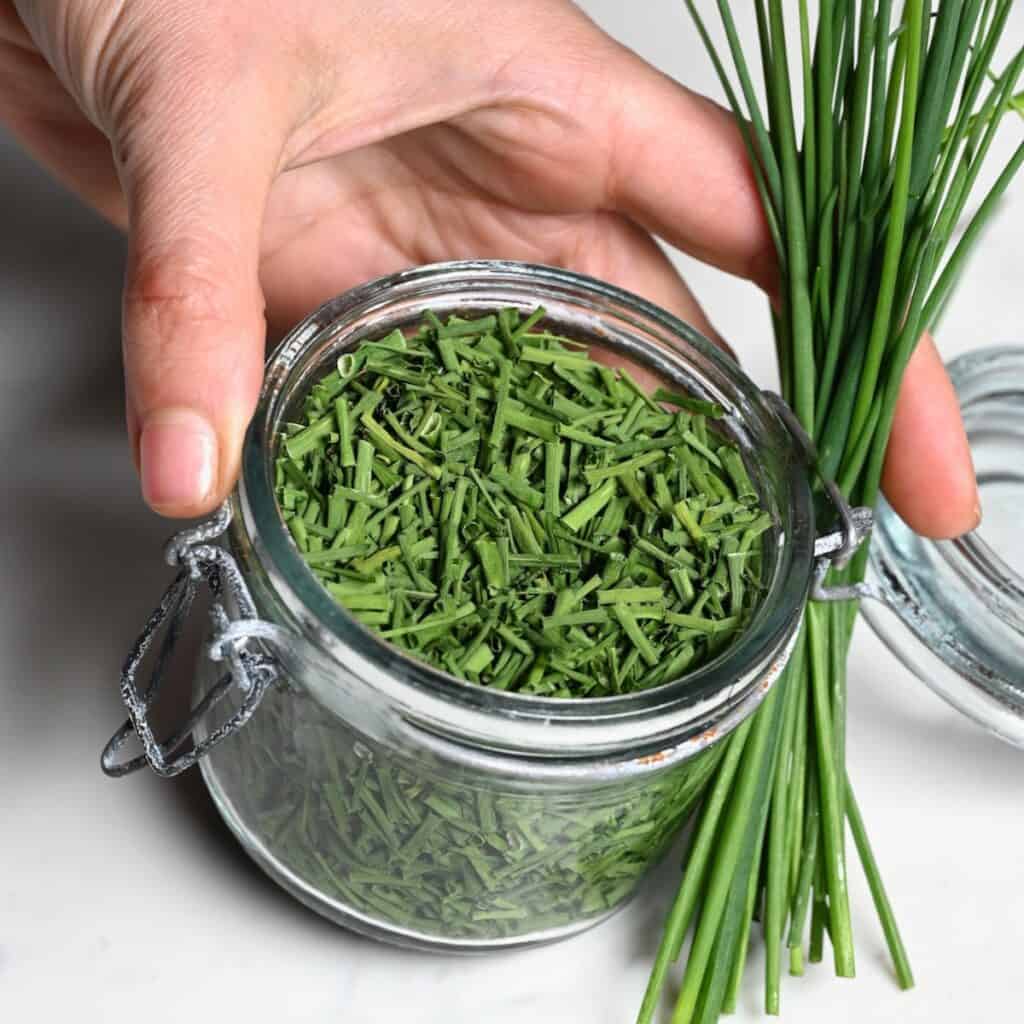
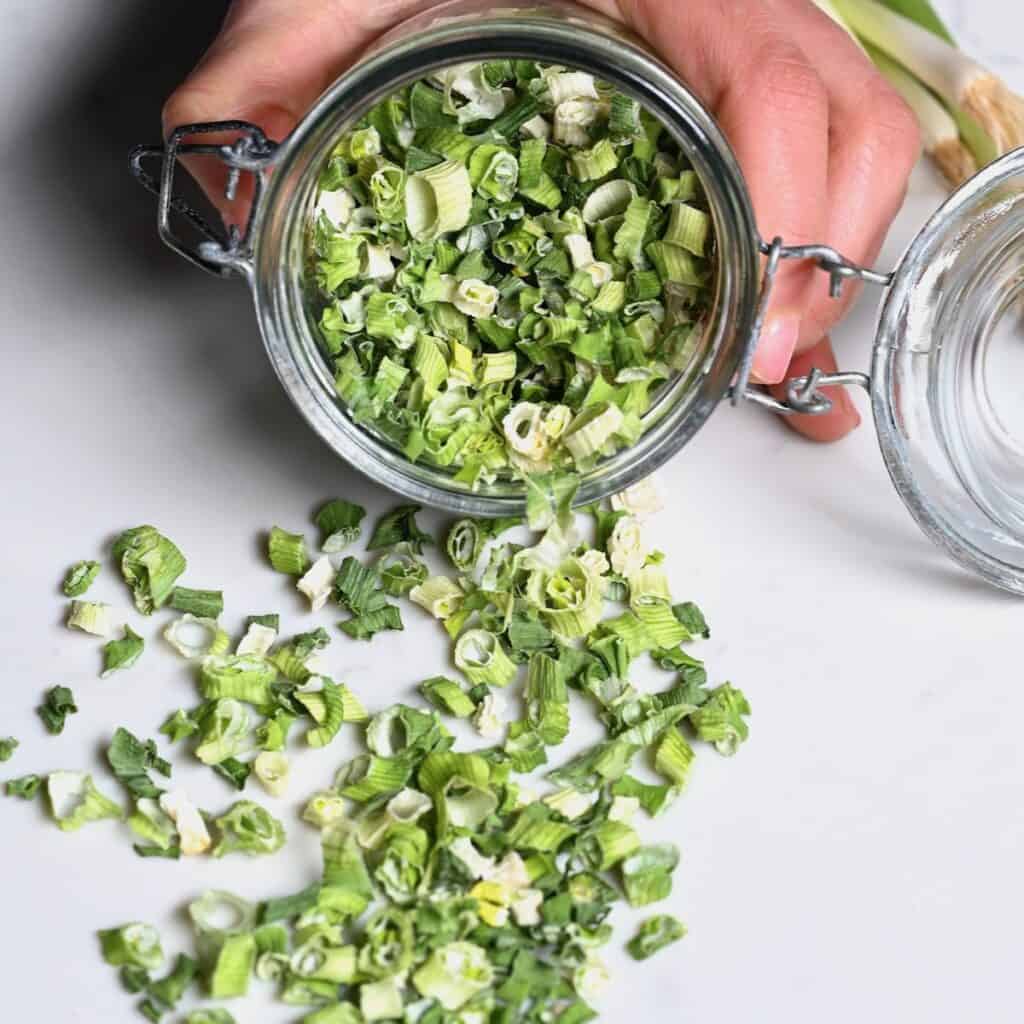
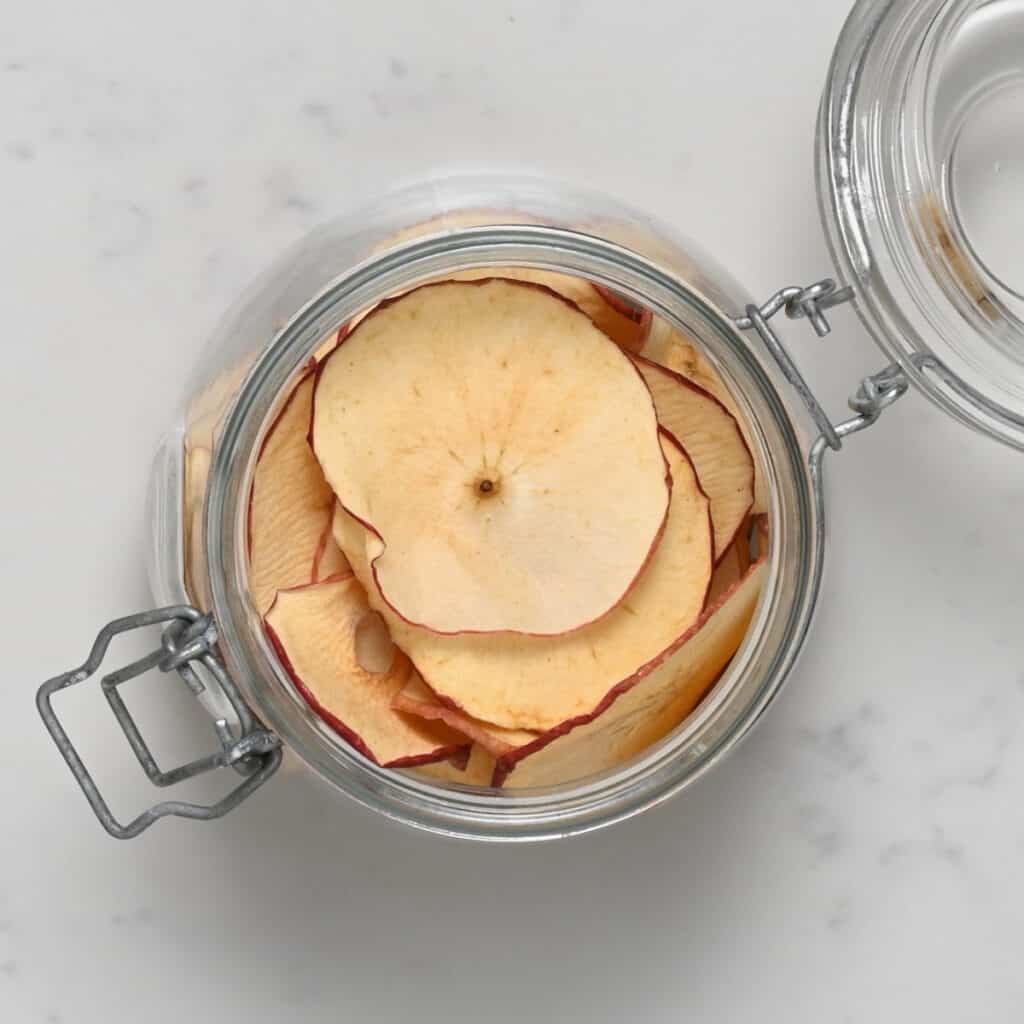
If you try any of these methods for how to dry parsley, let me know how it goes in the comments below. I’d appreciate a recipe card rating and would love to see your recipe recreations – tag me on Instagram @Alphafoodie!
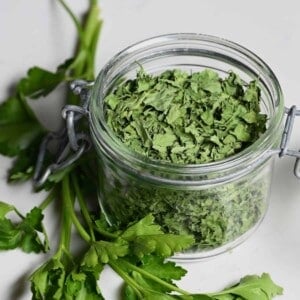
How to Dry Parsley (3 Methods)
Equipment
- Dehydrator or oven
Ingredients
- 3.5 oz parsley or as much as wanted
This will yield about 0.63 oz/18g of dried parsley
Instructions
- Remove the leaves from the stems (unless you're air drying). Wash well and pat dry absorbing as much moisture as possible with a kitchen towel or paper towel. Using a salad spinner can help too.Then pick your dehydrating method.
Using a Dehydrator
- Spread the leaves in a single layer on the trays of a dehydrator. Set the temperature to 95-100°F (35-38°C). Dehydrate until the parsley is completely dry – this will take about 1-2 hours, though check on it continuously during dehydration. The parsley is done when the leaves crumble easily.
Using an Oven
- Preheat your oven to the lowest temperature. Often that's about 170°F (75°C). Some new ovens can reach a lower temperature of 95-100°F (35-38°C). In this case, you don't need to keep the door open while drying parsley in the oven.
- Spread the leaves in a single layer on a baking sheet lined with parchment paper. Place in the oven and use a wooden spoon to keep the door cracked open. This will allow the moisture to escape. Remove from the oven when the leaves are dry but still green – this will take about 1-2 hours. I recommend checking on it every 20 minutes or so. The leaves should crumble easily.
Air Drying
- To make dried parsley with minimal effort, tie the stems and hang them upside down in a well-ventilated area. Avoid drying them in direct sunlight as it can cause the leaves to lose their color and flavor. It can take up to two weeks to dry it completely using this method, but I think it's worth it if you're looking to get dried herbs without using too much energy.
Storage
- store the dehydrated parsley in a clean airtight jar or container. If wanted, you can crush the leaves into smaller pieces (to make flakes).It will keep in your pantry/cupboard for more than a year.
Notes
Another rule to follow is 1 tsp dry parsley = ½ tsp ground dried herb. Check the blog post for more tips and serving recommendations!
Nutrition
Nutrition information is automatically calculated, so should only be used as an approximation.

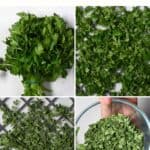

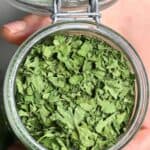









I used the oven method and it worked like a charm! Thank you so much for the directions.
So happy to hear this, Dorothy. Thank you!